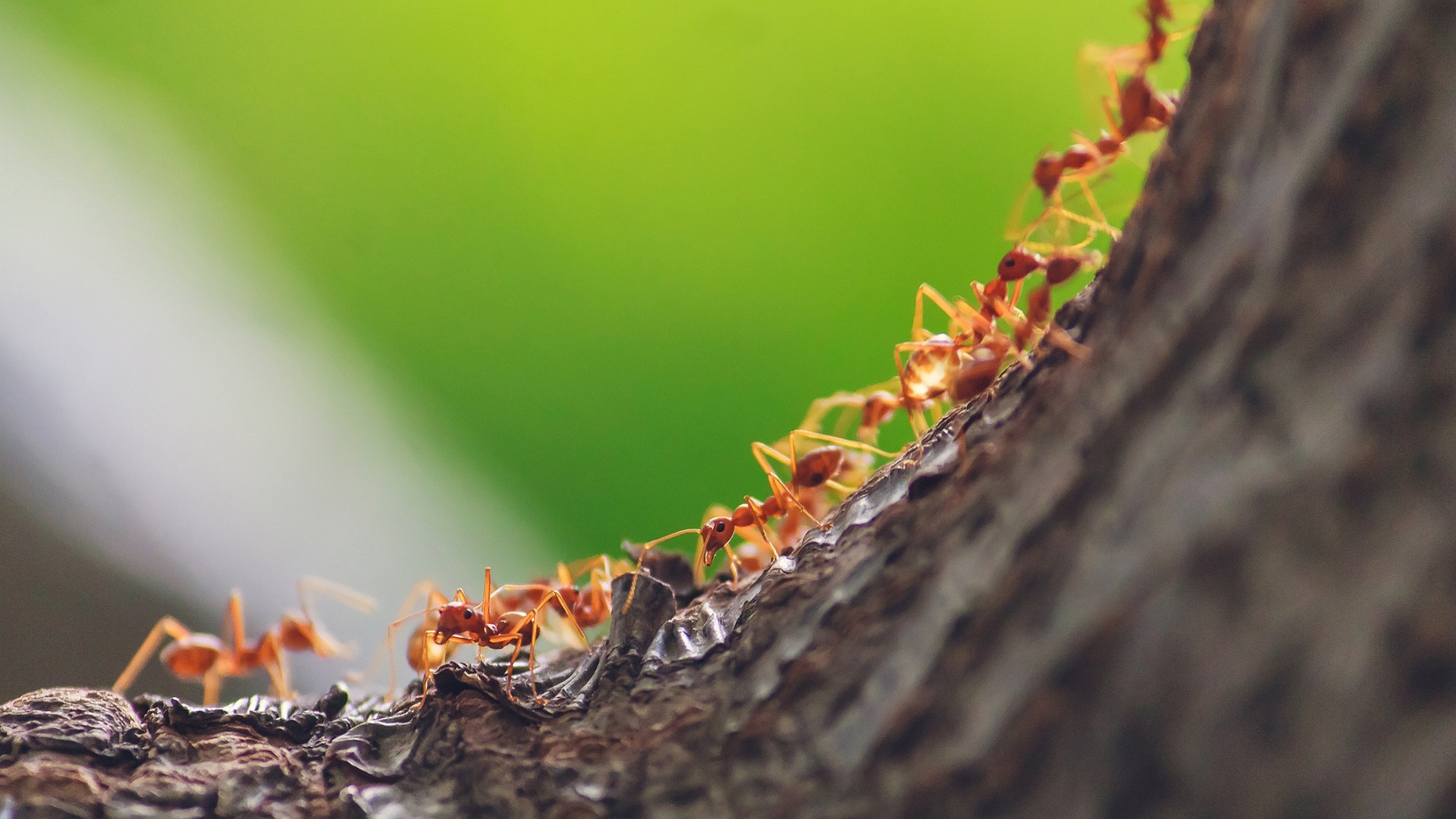
Ants are among the most difficult pests to deal with when they get inside your home. This is largely due to their small size and agility that lets them fit into hard-to-reach crevices. If you have an ant infestation in your home, it is important to address it sooner rather than later—but how exactly you do that is equally important to ensuring the problem is dealt with for good. Here are some basic steps you could take to figure out where your ant problem came from and eliminate minor infestations on your own.
The first step to getting rid of an ant infestation is to figure out what precisely is attracting ants into your home in the first place. Ants are mainly looking for food and water, so it can be helpful to start by looking for uncleaned spills or crumbs on your floors or countertops, open containers of food in your pantry and cabinets, or pet food that is stored in a way that allows ants to reach it.
Next, you will want to figure out how the ants got into your home from outside, which generally means finding and sealing up entry points. Ants can enter your home through even the tiniest cracks and crevices, so it is essential to be thorough when inspecting your windows, doors, and foundation for any gaps or holes. You can use caulk or weather-stripping material to close any openings you find.
According to the Internet and common wisdom, there are supposedly several “natural” ways to get rid of ants that do not involve using harsh chemicals or calling a pest control professional. Like lots of things online, there is an element of truth to these methods and an element of wishful thinking. For example, mixing vinegar and water in a spray bottle could act as a repellant for ants. However, this is only until the solution evaporates off whatever surface you sprayed it on, making it a very short-term solution at best.
Likewise, cinnamon-infused oil can be a natural ant repellant, but only if used in very high concentrations and placed in all the areas where ants may enter your home. Both store-bought and homemade bait traps have a similar problem—ants baited into carrying poison back to their nests will certainly end up killing many ants, but it may not solve the underlying problem completely, and it can leave a brand-new mess for you to clean up on top of that.
If your ant problem stems from a single factor, such as an unsealed food container or a leaky pipe, addressing that issue may fix your ant problem. If your ant infestation is particularly severe or you cannot get rid of it on your own, your best bet will almost always be calling in an experienced pest control company.
Ready Pest Control can identify the source of the infestation and apply our years of training and practical experience towards eliminating your ant problem. We can also provide more specific tips and advice on dealing with particular types of ants and preventing future infestations. Contact our team today to discuss your situation with a knowledgeable pest control professional.